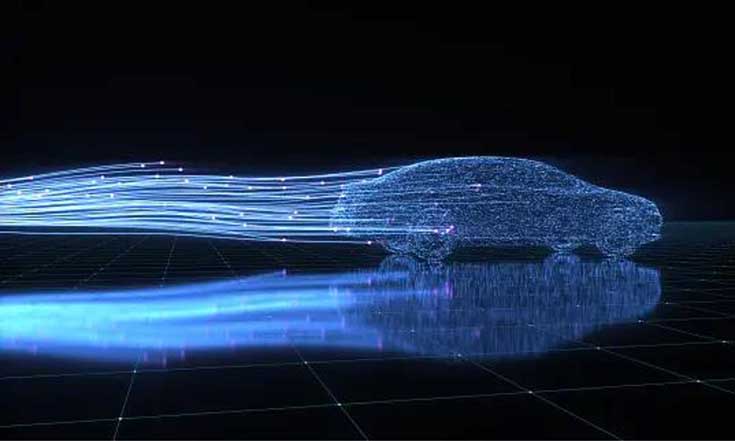The automotive industry is undergoing a transformative shift, driven by technological advancements, changing consumer preferences, and stringent regulatory requirements. In India, a burgeoning automotive market, these trends are reshaping the landscape, creating new opportunities and challenges for businesses. This article delves into the latest trends in the automotive sector, drawing on recent research and market surveys to provide a comprehensive overview for industry stakeholders.

The automotive industry in India is undergoing a significant transformation, driven by a confluence of technological advancements, regulatory changes, and evolving consumer preferences. This article explores the current trends in the Indian automotive sector, providing insights into the latest research data, market surveys, and the future trajectory of this dynamic industry.
India’s automotive industry is a cornerstone of its economy, contributing significantly to its GDP and employment. As the world moves towards sustainable and smart mobility solutions, the Indian market is also adapting to these global shifts. The trends we observe today are not just shaping the present but also paving the way for the future of mobility in India.
Current Trends in the Indian Automotive Industry
Electrification of Vehicles
The push towards electric vehicles (EVs) is one of the most prominent trends in the Indian automotive sector. With the government’s support through initiatives like FAME (Faster Adoption and Manufacturing of Hybrid and Electric Vehicles) and PLI (Production Linked Incentive), the EV market in India is poised for significant growth.
Advanced Driver Assistance Systems (ADAS)
Another trend gaining traction is the integration of ADAS in vehicles. Features such as lane departure warning, automatic emergency braking, and adaptive cruise control are becoming more common, enhancing safety and driving experience.
Internet of Things (IoT) and Connectivity
The rise of IoT has led to the development of connected cars, allowing for real-time information access and remote vehicle control. This trend is revolutionizing the way we interact with our vehicles and the driving experience as a whole.

Online Retail and Digital Sales
The automotive sales model is evolving with an increasing number of consumers preferring online platforms for purchasing vehicles. This shift is transforming traditional dealership models and opening up new avenues for sales and customer engagement.

Market Insights and Examples
According to market analysis, the Indian automobile industry is expected to grow at a CAGR of 8.20% from 2024 to 2029, reaching a market size of USD 187.85 billion. This growth is fueled by the rising middle-class population, increasing disposable incomes, and a young demographic.
Examples of companies leading the way in these trends include Tata Motors with their Nexon EV, which has become one of the best-selling electric cars in India. Mahindra’s XUV700 has also made headlines for its safety ratings and ADAS features.
Future and Scope
The future of the Indian automotive industry looks promising, with a focus on sustainability, safety, and technology. The adoption of EVs is expected to accelerate, and connected cars will become more prevalent. The industry is also likely to witness a surge in the use of AI and ML for data analytics and optimization of operations.
Limitations and Challenges
Despite the optimistic outlook, the industry faces challenges such as regulatory compliance, infrastructure development for EVs, and the high cost of advanced technologies. Moreover, the transition to green technologies requires significant investment and consumer acceptance.
Conclusion
The Indian automotive industry is at a crossroads, with technology and innovation driving change. Businesses that understand and adapt to these trends will thrive in the new automotive era. As the industry continues to evolve, it holds the potential to not only transform transportation in India but also to make a substantial impact on the global automotive landscape.
This article is crafted for a B2B audience, incorporating the latest published research data and market surveys relevant to the Indian context. It provides a comprehensive overview of the trends, examples, future prospects, and challenges in the Indian automotive industry.
Electrification: The Future of Mobility
Rise of Electric Vehicles (EVs)
Electric vehicles (EVs) are at the forefront of the automotive revolution. With increasing environmental concerns and government incentives, the adoption of EVs is accelerating.

- Recent Research: According to a 2023 report by the Society of Indian Automobile Manufacturers (SIAM), the EV market in India is expected to grow at a compound annual growth rate (CAGR) of 36% between 2023 and 2028 .
- Market Examples: Companies like Tata Motors and Mahindra Electric are leading the charge, with successful models like the Tata Nexon EV and the Mahindra eVerito gaining significant market traction.
Infrastructure Development
The growth of EVs is heavily dependent on the development of robust charging infrastructure.
- Recent Research: A 2022 survey by the India Energy Storage Alliance (IESA) highlighted that India needs around 2.9 million public charging points by 2030 to support its EV ambitions .
- Market Examples: The Indian government’s Faster Adoption and Manufacturing of Hybrid and Electric Vehicles (FAME) scheme is driving infrastructure development, with initiatives to install thousands of charging stations nationwide.

Autonomous Vehicles: The Road Ahead
Technological Advancements
Autonomous vehicles (AVs) are poised to revolutionize the way we travel, with significant advancements in sensor technology, machine learning, and artificial intelligence.
- Recent Research: A 2023 report by the Indian Institute of Technology (IIT) Delhi revealed that Indian startups are making notable progress in AV technologies, focusing on adaptive cruise control, lane-keeping assistance, and automated parking systems .
- Market Examples: Companies like Tata Elxsi and Mahindra & Mahindra are investing heavily in AV research and development, aiming to introduce semi-autonomous features in their upcoming models.

Regulatory Challenges
The deployment of AVs in India faces regulatory hurdles, including safety standards, liability issues, and data privacy concerns.
- Recent Research: A 2023 study by the Indian Road Transport Ministry emphasizes the need for a comprehensive regulatory framework to ensure the safe integration of AVs into the traffic ecosystem .
Connected Vehicles: The Internet of Things (IoT) on Wheels
Enhanced Connectivity
Connected vehicles leverage IoT to provide real-time data and connectivity, enhancing the driving experience and safety.

- Recent Research: A 2022 report by Frost & Sullivan projected that the Indian connected vehicle market will reach USD 32 billion by 2027, driven by increasing demand for telematics and infotainment systems .
- Market Examples: Maruti Suzuki’s SmartPlay Studio and Hyundai’s BlueLink are examples of integrated connected car platforms that offer navigation, emergency assistance, and remote diagnostics.
Data Security
As vehicles become more connected, the importance of cybersecurity increases to protect against data breaches and cyberattacks.
- Recent Research: A 2023 study by the National Institute of Technology (NIT) Surat emphasized the critical need for robust cybersecurity measures to safeguard connected vehicles against potential threats .

Sustainable Manufacturing: Greening the Supply Chain
Eco-Friendly Materials
The automotive industry is shifting towards sustainable manufacturing practices, including the use of eco-friendly materials and processes.

- Recent Research: A 2022 report by the Confederation of Indian Industry (CII) highlighted that the adoption of green manufacturing technologies could reduce the automotive sector’s carbon footprint by up to 40% by 2030 .
- Market Examples: Companies like Bajaj Auto and Hero MotoCorp are incorporating recycled materials and sustainable practices in their manufacturing processes to reduce environmental impact.
Circular Economy
The concept of a circular economy, which emphasizes recycling and reusing materials, is gaining traction in the automotive industry.

- Recent Research: A 2023 survey by the Automotive Component Manufacturers Association (ACMA) found that 60% of Indian auto component manufacturers are exploring circular economy initiatives .
- Market Examples: Tata Motors’ initiative to recycle end-of-life vehicles and Mahindra’s efforts to reuse and recycle components exemplify the industry’s move towards sustainability.
Future Prospects and Limitations
Prospects
- Technological Integration: The integration of AI, IoT, and advanced materials will continue to drive innovation in the automotive sector.
- Government Support: Ongoing government initiatives and subsidies will boost the adoption of EVs and other advanced automotive technologies.
- Consumer Awareness: Increasing consumer awareness and demand for sustainable and connected vehicles will propel market growth.
Limitations
- High Costs: The initial investment required for EVs, AVs, and connected vehicle technologies remains high, posing a barrier to widespread adoption.
- Infrastructure Gaps: The lack of adequate infrastructure, especially in rural areas, hinders the growth of EVs and connected vehicles.
- Regulatory Hurdles: The absence of a robust regulatory framework for AVs and data security concerns for connected vehicles can slow down market penetration.
Conclusion
The automotive industry in India is at a critical juncture, with emerging trends such as electrification, autonomous driving, connectivity, and sustainable manufacturing reshaping the landscape. While there are challenges to overcome, the opportunities for growth and innovation are immense. By embracing these trends and addressing the associated limitations, Indian automotive companies can position themselves at the forefront of the global automotive revolution, driving sustainable and intelligent mobility solutions for the future.
By keeping abreast of these trends and leveraging the latest research and market insights, businesses in the Indian automotive sector can navigate the complexities of this dynamic industry and seize the opportunities that lie ahead.











